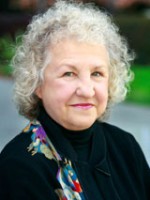Funding: R01DA039971
Project PI: Karen Trocki, PhD (Subaward); Tooru Nemoto, PhD (PHI)
Subaward PI: Karen Trocki, PhD
Prime: Tooru Nemoto, PhD, PHI
The proposed study will investigate the trajectories of substance use, prescribed hormone use (PHU), non-prescribed hormone use (NPHU), and psychological well-being among transwomen (male-to-female transgender persons) and transmen (female-to-male transgender persons) who identify their gender other than that assigned at birth. Many trans people seek to align their physical appearance to match their internal gender identity through taking cross- gender hormones and surgical procedures.
The Standard of Care, World Professional Association for Transgender Health recommends the initiation of cross-gender hormone and surgical treatments to those who are transitioning from a gender assigned at birth to a gender they identify with after comprehensive counseling by mental health professionals. During the transition, many transwomen/men face a number of difficulties due to transphobia, exposure to sexual and physical violence, and gender-based discrimination. Hormone therapy and surgical interventions help transwomen/men to increase health and well-being and assist them to attain safety. A high prevalence of substance use and NPHU among transwomen/men has been reported. Transwomen who used NPHs reported more substance use than those who used only prescribed hormones (PHs). NPH users also showed higher prevalence of depression, suicidal thoughts, and transphobia, and lower levels of self-esteem. The reported widespread NPHU is troublesome because NPHU is associated with improper dosage and a lack of medical monitoring that elevates health risks. Few studies have investigated the trajectories of substance use and PHU/NPHU in relation to psychosocial factors among transwomen/men.
The specific aims of the study are:
1) To longitudinally describe and understand the trajectories of substance use, PHU/NPHU, and psychological well-being among transwomen and transmen in relation to background variables (e.g., gender identity and transition and fluidity of sexual orientation and sexual partnership);
2) To explore and determine psychosocial factors and examine the mediating effects of psychosocial factors (e.g., transphobia, self-esteem, satisfaction with gender transition, social support, and trans community identity) on health outcomes (e.g., substance use, PHU/NPHU, and psychological well-being);
3) To compare transwomen and transmen in term of trajectories of substance use, PHU/NPHU, and psychological outcomes in relation to psychosocial factors and background variables; 4) To disseminate study findings through presentations and publications and prepare a future health promotion intervention study for transwomen/men who have been neglected by research studies. In order to attain the specific aims, we will utilize mixed methods; first conducting qualitative interviews with transwomen/men, and then a longitudinal study with transwomen (n=120) and transmen (n=120) recruited in the San Francisco Bay area.






